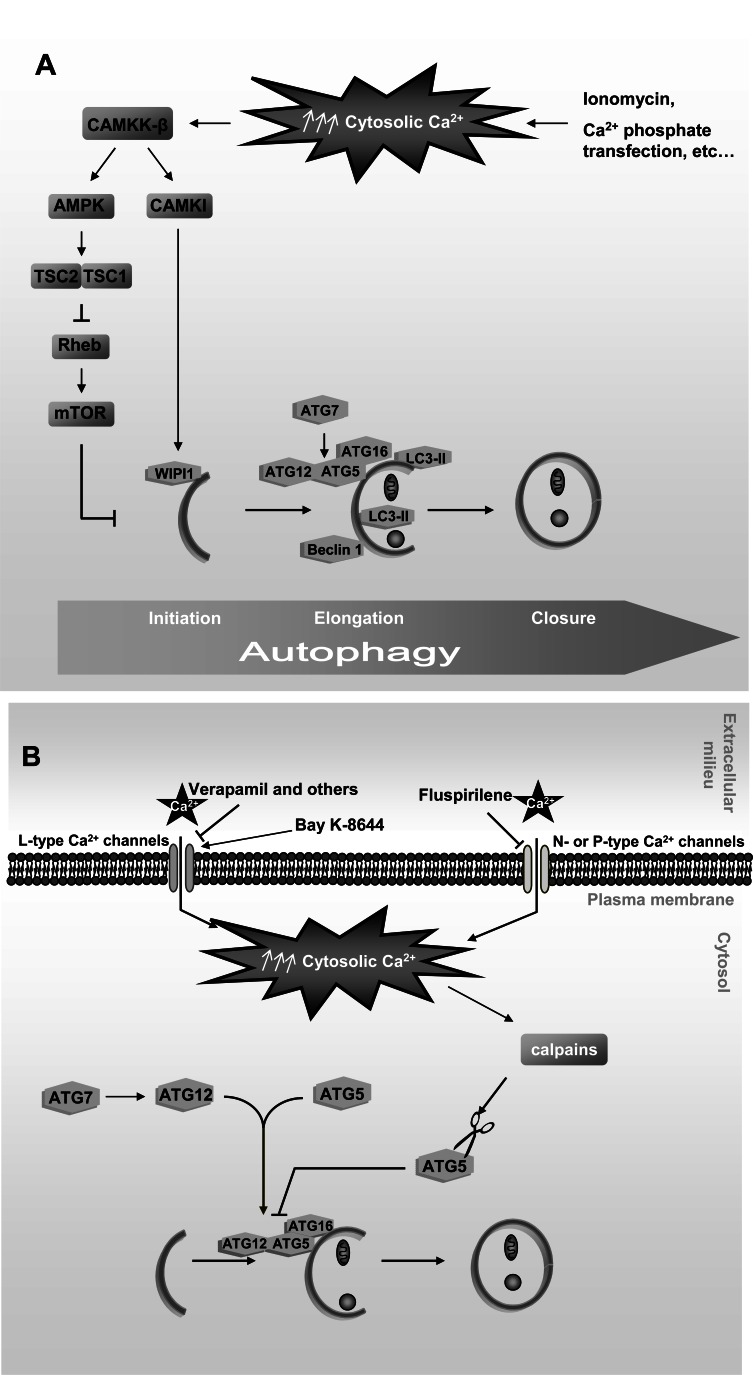Fig. (2).
Cytosolic Ca2+ effects on autophagy. A. Cytosolic Ca2+ induces autophagy in non-excitable cells: Rise of cytosolic Ca2+ produced by different drugs and Ca2+ phosphate-mediated transient transfections activates the CAMKK-β-AMPK-mTOR and CAMKK-β-CAMKI signalling pathways that induce autophagy through various protein targets implicated in this process. B. Cytosolic Ca2+ inhibits autophagy in excitable cells: Antagonists of L-, N- or P-type Ca2+ channels (verapamil, fluspirilene etc…), and an agonist of L-type Ca2+ channels (Bay K-8644) modify cytosolic Ca2+ levels and consequently affect the activity of the Ca2+-dependent proteases calpains, including their ATG5 cleavage that inhibits autophagy. See text for further details.

